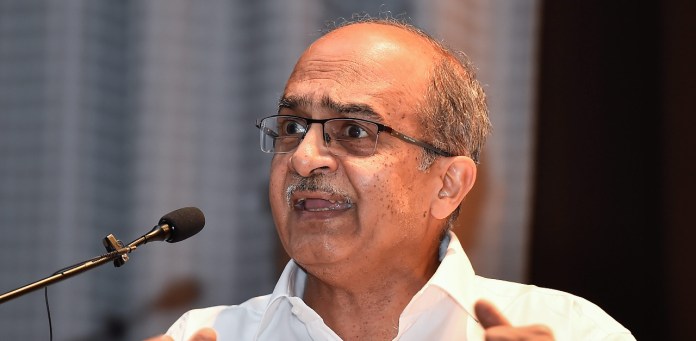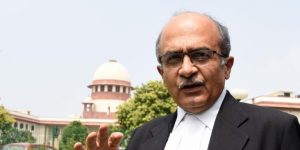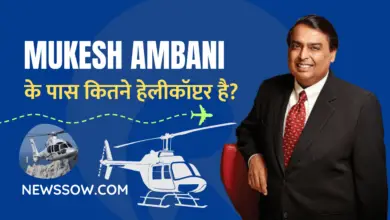Prashant Bhushan | Personal life | Age | biography | Bibliography
prashant bhushan family | prashant bhushan education | prashant bhushan family

Prashant Bhushan (born 15 October 1956) is an Indian public interest lawyer in the Supreme Court of India. He was a member of the faction of India Against Corruption (IAC) movement known as Team Anna, which supported Anna Hazare’s campaign for the implementation of the Jan Lokpal Bill.
After the split in the IAC, he helped Team Anna form the Aam Aadmi Party. In 2015, he made several allegations against the leadership of the party, its functioning and its deviations from core ideology, values, and commitments. He is one of the founders of Swaraj Abhiyan and Sambhavna, Institute of Public Policy and Politics.
| Prashant Bhushan | |
|---|---|
 | |
| Born | 15 October 1956 |
| Alma mater | Allahabad University |
| Occupation | Advocate-on-Record |
Early life
Prashant Bhushan is the eldest of the four children of Shanti Bhushan and Kumud Bhushan. His father is a lawyer-activist and former Union Law Minister in the Morarji Desai government. Bhushan, who dropped out of IIT Madras after the first semester and briefly at Princeton University from the University of Allahabad. Obtained a law degree. While still a student, Bhushan wrote The Case That Shook India, a book on the case that set aside the 1974 election of Indira Gandhi.
Personal life
Prashant Bhushan is married to former lawyer Deepa Bhushan. The couple has three sons.
Bibliography
- Bhushan, Prashant (1978). The case that shook India. Vikas Pub. House. p. 294. ISBN 0-7069-0594-6.Bhushan,
- Prashant (1990). Bofors, the selling of a nation. Vision Books. p. 275. ISBN 81-7094-066-4.
Legal activism
Bhushan was attracted to public activism by being influenced by his father. His main areas of interest have been human rights, environmental protection and accountability of public servants. He is associated with various organizations including the Center for Public Interest Litigation (CPIL), the People’s Union for Civil Liberties (PUCL), and Transparency International (India). He is also the convenor of the Judicial Accountability and Judicial Reform Campaign Working Committee.
Bhushan says that he has raised about 500 cases dealing with “good causes”. His family background allowed him to work for such cases on a free basis: according to him, he effectively spends only 25 percent of his time on paid cases, charged by other lawyers Charge 5 percent. He has criticized other professional lawyers as “immoral”, and claimed That he does not raise a case until he feels that his client is “morally right”.
Judicial accountability
Bhushan says that he envisages a transparent and honest legal system where people can discuss their cases without the need for a lawyer. In 1990, he and his father formed the Judicial Accountability Committee (CJA) to fight corruption in the judiciary. The organization consisted of some lawyers and former judges. Prashant Bhushan began to focus more on the issue in 1993 after Supreme Court Justice V. Ramaswamy was not impeached by Parliament on corruption charges. In 2007, Bhushan expanded the CJA to engage citizens and create a campaign for judicial accountability and reform (CJAR).
In 2009, Prashant Bhushan represented activist Subhash Chandra Aggarwal, demanding that Supreme Court and High Court judges be brought under the RTI. The judges were forced to declare their assets and posted them on court websites.
In a 2009 interview, Bhushan alleged that at least half of the 16 former Chief Justices of the Supreme Court were corrupt. Harish Salve filed a contempt case against him in 2010 and the Supreme Court asked Bhushan to apologize. In response, Bhushan offered an explanation stating why he felt those judges were corrupt. Bhushan mentioned the difficulty in obtaining documentary evidence as the judges are free from investigation. Former Supreme Court judge Krishna Iyer said that either Bhushan should be punished for making “false allegations” or that an independent authority should be set up to investigate his allegations.
Bhushan has recommended amendments to the section of the Contempt of Court Act, stating that some of its clauses effectively prevent the press from exposing corruption in the judiciary. He has also opposed the rule that prohibits people from filing a First Information Report against a judge without the permission of the Chief Justice of India.
Government accountability
In 1990, Bhushan wrote a book on the Bofors scandal, Bofors, Ek Rashtriya Ki Baal (1990).
CPIL won a major victory in 2003 when the Supreme Court barred the central government from privatizing Hindustan Petroleum and Bharat Petroleum without the approval of Parliament. As CPIL counsel, Rajinder Sachar and Bhushan argued that the only way to disinvest in companies would be to repeal or amend the Acts by which they were nationalized in the 1970s.
Bhushan represented CPIL in a petition seeking the removal of Neera Yadav from the post of Chief Secretary of Uttar Pradesh for alleged corruption. Yadav was named in five CBI corruption cases and 23 departmental proceedings. In October 2005, the Supreme Court directed the Mulayam Singh state government to remove him from his post. This was the first case in which an officer of the Indian Administrative Service in Uttar Pradesh was convicted of corruption.

In February 2006, as a lawyer for the Public Servants Association, Bhushan submitted to the Supreme Court that the MP Local Area Development Scheme (MPLADS) could not be constitutionally valid. A TV channel recently aired a video of a sting in which some MPs seemed to have taken a bribe under the scheme. Bhushan said that none of the general controls were being implemented and that the scheme was giving rise to corruption. In the same year, Bhushan also represented CPIL in a petition alleging that PepsiCo and Coca-Cola had failed to warn the public about harmful ingredients in their beverages, and that little was done through misleading advertisements. Tempting children.
Bhushan filed public interest litigation challenging the appointment of PJ Thomas as the Central Vigilance Commissioner after Thomas was charged in the palmolein oil import scam. In March 2011, the SC canceled the appointment.
Prashant Bhushan worked for CPIL when he pledged to file a lawsuit against the Government of India for irregularities in a major award of spectrum for 2G mobile telephones. The CPIL petition alleged that the government incurred a loss of $ 15.53 billion in 2008 by issuing spectrum based on 2001 prices and not following the competitive bidding process. The Supreme Court has asked the CBI to investigate the disturbances in the auction of 2G spectrum. As a result of the investigation, Telecom Minister A.K. Raja resigned, who was later arrested along with others including DMK MP Kanimozhi, Unitech Wireless officials and Reliance ADAG officials.
In September 2011, Bhushan produced evidence that appeared to refute the CBI’s claim that former Telecom Minister Dayanidhi Maran had not pressured Aircel’s owner to sell it to Malaysia’s Maxis Group. Bhushan said that the CBI investigation was “less than honest”.
In January 2012, Bhushan questioned why the CBI failed to press charges despite strong evidence against companies like Essar Group and Loop Mobile under the Prevention of Corruption Act. In February 2012, the Supreme Court declared that the allocation of spectrum was illegal.
In 2012, Bhushan filed a Public Interest Litigation seeking cancellation of coal block allocation by the government on the grounds that some companies were illegally supported by politicians. In response to the PIL, the Supreme Court (SC) probed the coal block allocation since 1993. Bhushan also filed public interest litigation against illegal iron ore extraction in Goa, due to which the Supreme Court stopped all mining operations in the state.
He successfully challenged the decision of the Prime Minister and Home Minister to appoint PJ Thomas as the head of the Central Vigilance Commission (CVC). Acting on his PIL, the SC sent complaints to the CVC by whistleblowers in the country. Instructed to inform about the action taken.
Prashant Bhushan also represents whistleblower Anand Rai in public interest litigation in connection with the Vyapam scam in the Supreme Court.
Prashant Bhushan raised a red flag before the appointment of KV Chaudhary, asking the Prime Minister not to go ahead with his appointment, raising serious objections to Chaudhary’s tenure as CBDT chief. After Chaudhary’s appointment, Common Cause, representing NGO Prashant Bhushan, has filed a petition in the Supreme Court of India challenging the appointment of KV Chaudhary as CVC and the appointment of TM Bhasin as VC on 22 July.
Naxalism
Prashant Bhushan has criticized the use of violence against Naxalites in tribal-dominated areas. He has alleged that the real intention of Operation Green Hunt was to vacate tribal lands for mining operations and industrialization. According to him, rapid industrialization has led to “disastrous development” in tribal areas through pollution and displacement of people.
Following the Maoist attack in Dantewada in April 2010, which killed 76 policemen, he said such “vengeance” was expected as the government declared war on anti-Naxal operations. He said that to worsen the situation, the government should suspend armed operations against Naxalites, and instead focus on providing food and infrastructure to the tribals.
In April 2012, Bhushan criticized Congress leaders after he refused to act as an intermediary in negotiations with Maoists holding the district collector hostage. He appealed to the Maoists to release the government. Unconditional officer. He also said that the government should investigate and resolve the legitimate demands.
Death penalty
Bhushan is against capital punishment, and against hanging Ajmal Kasab, the only terrorist caught in the 2008 Mumbai attacks. Along with Nitya Ramakrishnan, he was the advocate of the banned documentary on 13 December, which is a reconstruction of the events that led to the attack on Parliament, based on the charge sheet filed by the Special Police Cell.
Other issues
In 1990, he successfully obtained the criminal liability aspect in the Bhopal gas tragedy reopened by the Supreme Court, challenging the settlement in terms of compensation to the victims. It reopened the case against Warren Anderson (now deceased), former chairman of Union Carbide Corporation.
Bhushan assisted activists of the Narmada Bachao Andolan opposing the Sardar Sarovar Dam. After a six-year hearing, in October 2000, the Supreme Court ruled to allow the project to be resumed on a large scale. Bhushan criticized the decision to be “made before the judges [without any evidence of the facts]”.
A criminal petition was filed in the Supreme Court of India in February 2001 accusing Medha Patkar, Prashant Bhushan, and Arundhati Roy of contempt of court for protesting against the verdict on the Sardar Sarovar Dam.
Bhushan defended Arundhati Roy after she was accused of contempt of court for publicly criticizing the judges at the dam hearing. In March 2002, he was sentenced to one day in jail. According to Bhushan, the judges were “simply hurt by the fact that someone dared to criticize them”.
Bhushan is opposed to the Indo-US civil nuclear deal. He is opposed to nuclear power, and he supported the mass movement against nuclear power against the establishment of the Kudankulam nuclear power plant.
In August 2015, Bhushan filed a PIL in the Supreme Court against alleged corruption and nepotism in the selection of judges of the lower court in the Delhi Judicial Services Examination held in October 2014. As a result of the PIL, the Supreme Court ordered that the papers should be examined by former Supreme Court Judge and former Chairman of the Law Commission, Justice PV Reddy. He later recommended that 12 more judges should be included in the services. The Supreme Court has to issue guidelines for long-term systemic reforms such as increasing transparency in recruitment processes.
The Attorney General of India and the Government of India commenced contempt proceedings against Advocate Bhushan for his tweet on February 1, 2019, regarding the hearing before the Supreme Court of India in the case involving the appointment of the CBI chief. Later, however, the Attorney General sought to withdraw the proceedings, indicating that Bhushan’s comments were a “real mistake”.
In August 2020, the Supreme Court of India held Bhushan guilty of contempt of court in relation to two posts made by him on Twitter. The first post was a critique of the role played by the previous four Chief Justices of India, and the second was criticized in relation to a photograph of the Chief Justice of India posing on a motorcycle without a mask while the court was under lockdown. . Kovid-19 epidemic in India. Writing for the bench, Justice Arun Mishra said that these tweets were not merely personal opinions and that they were “shaking public confidence in the institution of the judiciary”. The proceedings were widely criticized by many former judges of the Supreme Court and High Courts, including Supreme Court Justice Kurian Joseph, Ruma Pal, G.S. Singhvi, A.K. Ganguly, Gopal Gowda, Aftab Alam, Jasti Chelameswar, and Vikramjit Sen. Bhushan was also supported by statements published by senior advocates and civil servants. During the proceedings, the Attorney General of India objected to the Supreme Court, noting that contempt proceedings required his consent, which was not obtained in the case. The Supreme Court refused to listen to him and initially published an order not recording his presence, although it was later amended to correct the error. On 31 August 2020 , The Supreme Court fined him ₹ 1 for contempt of court, which he paid on the same day.
Team Anna and Jan Lokpal movement
In 2010, a series of anti-corruption demonstrations took place in India after high-profile cases such as the Commonwealth Games scandal and the Adarsh scandal were exposed in the media. An anti-corruption campaign that included a demand for the Jan Lokpal Bill took place and came to be known as India Against Corruption Movement. Prashant Bhushan was one of the many activists who participated in the anti-corruption crusade.
In March, the Prime Minister’s Office (PMO) invited Hazare, the most prominent leader of the movement, to hold talks. Prashant Bhushan and his father Shanti Bhushan, along with Swami Agnivesh and Kiran Bedi attended a meeting with Hazare. Subsequently, in April 2011, Hazare nominated Bhushan as member of the Joint Committee constituted to draft the final version of the Lokpal Bill.
A few days after the committee started work, a CD was released which appears to be a recording of a conversation between Samajwadi Party’s Shanti Bhushan and Amar Singh. The recording related to the 2G spectrum case will discredit Shanti Bhushan if found to be genuine. Prashant Bhushan said that the labs have shown that the CDs had been tampered with, and aimed to hinder the anti-corruption movement. Later, Singh claimed that Bhushan called him and tried to stop him from talking, a charge denied by Bhushan.
The committee met with representatives of the government several times to discuss the proposed bill. Prashant Bhushan stated that the Lokpal should have full autonomy and power to prosecute all public servants and that the doctrine was non-negotiable. Team Anna activists disagreed with the government’s attempt to keep the Prime Minister out of the Lokpal’s purview.
The government did not want the Lokpal to have the power to examine the conduct of MPs within the Prime Minister, the High Judiciary, the Defense Services, the CBI, and the CVC and within Parliament. The draft government bill also excludes many other ombudsman powers proposed by Team Anna’s draft such as the power to tap phones.
On 4 August 2011, the government’s version of the Lokpal Bill was introduced in the Lok Sabha. Prashant Bhushan and other IAC activists criticized the bill as weak, saying it would provide protection to corrupt officials.
Hazare protested against the government’s version of the bill but was taken into custody. Other activists, including Prashant Bhushan, then organized peaceful protests across the country. After Hazare’s hunger strike and more unsuccessful talks with government representatives, a section of Team Anna activists led by Kejriwal and Bhushan decided to enter politics to pass the bill themselves.
Himachal land controversy
In 2011, Congress leader Digvijay Singh alleged that both Bhushans had failed to pay taxes when they bought an investment property in Allahabad. Bhushan denied the charge, calling it “a very organized and concerted effort to discredit members of civil society in the Lokpal draft committee” with allegations.
Kashmir issue controversy
In 2011, at a press conference in Varanasi, Bhushan stated that he wanted the Armed Forces Special Rights Act in Jammu and Kashmir to be repealed. He said that the government should try to convince the people of Kashmir Valley to form an alliance with India, but if they want to do so, they should be allowed to secede. On 12 October 2011, he was attacked by members of the Bhagat Singh Kranti Sena inside the Supreme Court premises for his comments. The group accused him of trying to break up India. He was dragged from his chair, and repeatedly kicked and punched. Bhushan described his attackers as having a “fascist mindset” and retained his statements. Many politicians and activists condemned the attack on Bhushan, while some others criticized him.
The Shiv Sena demanded Bhushan to file a police case against him accusing him of supporting anti-national elements. Hazare distanced Team Anna from Bhushan’s remarks, saying these were his personal views.
Also Read:-
- Disha Parmar
- Siddharth Nigam
- Jasmine Bhasin
- Sanjay Surinder
- Nikki tamboli
- Tanner buchanan
- Brianne Nicole howey
- Erin moriarty
- Chapati Hindustani Gamer Net Worth, real name, Biography and more
Aam Aadmi Party
Bhushan has long been a critic of the United Progressive Alliance (UPA) government. In 2012, he co-founded the Aam Aadmi Party, stating that other political parties were corrupt. Bhushan accused BJP’s Prime Ministerial candidate Narendra Modi of being corrupt and a “puppet” of Reliance Industries. He also accused the RSS of supporting terrorist activities and criticized the BJP for its links with the RSS.
Before the 2015 Delhi elections, Bhushan accused party chief Arvind Kejriwal of selecting the candidates of his choice. After the elections, on 4 March 2015, Bhushan and Yogendra Yadav were removed from the Aam Aadmi Party’s political affairs committee for anti-party activities and for working towards the party’s defeat in the Delhi elections.
Both Bhushan and Yadav denied the allegations. On 28 March 2015, he was removed from the National Executive Council of the AAP after a vote, at a meeting whose conduct was later disputed by Bhushan. He and Yadav then formed a new political movement called the Swaraj Abhiyan. In April 2015, he was expelled from the party by the disciplinary committee of the AAP.
Prashant bhushan in facebook:- Click Hear
Prashant bhushan in Twitter:- Click Hear
——-The End——-
| Homepage | Click Hear |




I loved as much as you will receive carried out right here.
The sketch is attractive, your authored subject matter stylish.
nonetheless, you command get bought an impatience
over that you wish be delivering the following. unwell unquestionably come more formerly again as exactly
the same nearly a lot often inside case you shield
this increase.
I simply couldn’t go away your site before suggesting that
I extremely enjoyed the standard information a person provide for your visitors?
Is going to be again frequently to inspect new posts
Howdy fantastic website! Does running a blog like this take a lot of work?
I’ve absolutely no expertise in computer programming but I had been hoping too start my own blog in the nea future.
Anyways, shold you have any suggestions or techniques for new blog owners please share.
I understand this is offf subject but I jus wanted to ask.
Kudos!
High roller sttatus bonus is obtainable to tthe players, who attain this standing by
depositing a powerful cash (preferably, more than $1000) within the gambling account.
Fallsview Casino Resort and Casino Niagara have temporarily closed all casino aand resort operations
as of Mardh 16, 2020. Regular gaming experts earn a considerable revenue
by joining on-line gaming websites enlisted on the Canadian Online Casino reviewing web site.